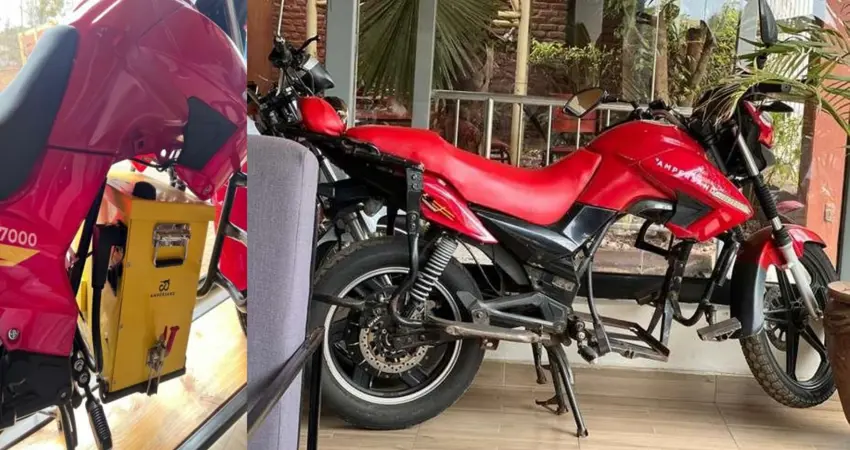16 Jul 2025
Oxford to lead one of five Faraday concept-to-demonstrator projects with input from industrial partners
Collaborative projects initiated to advance deployment of batteries in emerging economies, optimising and validating battery systems to maximise performance and improve efficiency

Image: Bboxx
The Faraday Institution has awarded five collaborative projects that will deliver tangible demonstrators of battery systems in Sub-Saharan Africa, South Asia and the Indo-Pacific region. The projects will seek to optimise and validate battery systems to maximise performance and improve efficiency and lifetime, specifically tailored to typical operating conditions in their intended deployment locations. In doing so they will advance the technologies a step closer to commercialisation.
The widespread adoption of electric mobility in sub-Saharan Africa and South-Eastern Asia is hindered by the limited lifespan and variable performance of the low-cost lithium-ion batteries that power these vehicles, particularly lithium iron phosphate cells that are not manufactured to the same quality as Tier 1 automotive-grade cells.
The UniBatt project, a collaboration between the University of Oxford (led by Professor David Howey) and Bboxx, aims to deliver tangible benefits in unlocking the full potential of e-mobility by increasing battery reliability and interoperability, focusing on Rwanda and Kenya.
Professor Howey says, “We’ve collaborated with Bboxx for over a decade and are delighted to now be scaling up some of our research so that it can be applied as widely as possible to predict battery health in this important application area”.
UniBatt’s aims are:
- Demonstrating non-destructive state-of-health and lifetime diagnostics at scale, integrating the health estimation algorithms previously developed by Oxford into the BBOXX Pulse software platform that monitors more than half a million battery products.
- Demonstrating a route to extend the lifespan of LFP cells to develop and deploy battery management strategies tailored to the environmental conditions of sub-Saharan Africa.
- Demonstrating a flexible and modular battery pack prototype that can be used universally across different manufacturers’ e-motorcycles and fully managed on Bboxx’s Pulse software platform.
These aims will directly enable more reliable, cost-effective, and sustainable battery operations for Bboxx and similar providers, accelerating the uptake of clean energy and transport.
“Advancing the uptake of e-mobility solutions and decarbonising electricity provision in communities in the global south with low or no connectivity are multi-faceted challenges. Our collaborations with multiple partners are moving the dial, bringing reliable access to clean energy sources to communities, with the potential of changing lives and livelihoods. As such, the Faraday Institution and ACES are well positioned to effect global change.”
Professor Martin Freer, CEO, Faraday Institution




